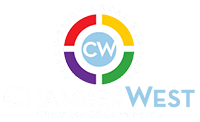Immigrant Entrepreneurs Face Real Friction — Here’s How to Push Through
Starting a business in a new country is like trying to finish a puzzle without knowing what the final picture looks like. The drive is there. The skills, often sharper than expected. But every move gets slowed by mismatched systems, unseen expectations, and rules written in invisible ink. The problem isn’t capacity—it’s friction. And that friction shows up in specific, repeatable places that demand equally specific moves.
Language Barriers Aren’t Just About Translation
Selling, pitching, and negotiating rely on tone, nuance, and local rhythm. Many immigrant founders quietly struggle to adapt, even when fluent, because of subtle language and cultural barriers. What feels confident in one country might feel rude or vague in another. These disconnects stack up fast when the cues don’t match your home reflexes. When that friction goes unnamed, it delays deals and erodes trust. Adaptation starts with noticing the difference, not pretending it isn’t there.
Sometimes the Simplest Move Is Legal Setup
One often-overlooked blocker is formation logistics. If you're still hesitating, look into how to form an LLC in Utah or other states with business-friendly policies. Registering your business not only protects you, but gives you real footing in the system. It unlocks banking, contracts, and credibility. You don’t need a lawyer on retainer—just a clean next step. Once it’s real on paper, you’ll feel more momentum than expected.
Your Cultural Background Is a Business Asset
What looks like “different” in the wrong room is “unmatched positioning” in the right one. Many founders are now leveraging cultural diversity as a strength instead of hiding it to blend in. Your upbringing, values, and instincts can unlock customer insights others miss. Whether it’s product fit, marketing approach, or customer loyalty, your heritage can be a differentiator. But that only works if you lean into it. Quiet pride often outperforms loud positioning.
Funding Systems Don’t Speak Your History
You may have ten years of experience—but no U.S. credit score. Lenders and investors often screen out what they don’t recognize, which makes accessing capital and funding feel like a guessing game. That doesn't mean you're blocked—just misaligned with the expected signals. Focus on traction, revenue, and peer validation instead of prestige. Investors respond to velocity more than vocabulary. You can’t shortcut trust, but you can start building proof.
You Don’t Need to Know Everything—You Need to Know Who Can Help
Every state, city, and ecosystem has immigrant support programs. Tapping into accessing entrepreneurship support programs early reduces both friction and fatigue. They aren’t always obvious, but they’re there—and many are free. Look for language-accessible mentoring, business formation workshops, and grant eligibility screenings. What matters is not finding every option, but unlocking the one that keeps you moving. Local navigation is easier with a partner, even if they’re temporary.
Your Network Doesn’t Exist Yet—But It Can
You’re building something alone in a country where connections often move faster than credentials. One way to avoid the isolation trap is by intentionally building professional networks from day one. Other immigrant founders are already doing it—and many will meet you halfway. Don’t aim for surface-level LinkedIn growth. Start with real conversations, local meetups, and introductions from adjacent industries. Networks built on shared experience last longer than those built on titles.
You don’t need to erase where you came from to succeed where you are. Immigrant entrepreneurship isn’t a liability—it’s a high-stakes test of vision, stamina, and adaptability. That doesn’t mean every day feels brave. It means every hour you stay in the game sharpens your edge. The right insight, the right helper, the right move—they don’t land all at once. But if you keep naming the friction and choosing the next step, you’ll build a business that only you could have built.

